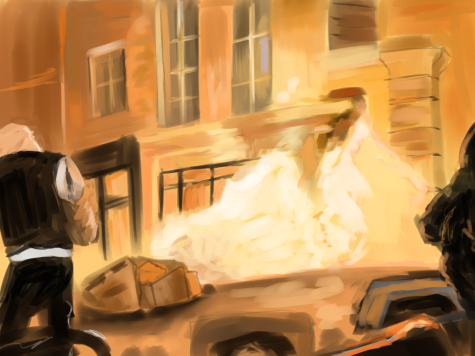New Year’s Massacre
February 15, 2017
The arrival of the new year was supposed to be a moment of hope and optimism, a chance for a fresh start after the global turmoil and animosity of the outgoing year. Instead, for hundreds at the Reina nightclub in Istanbul, Turkey, 2017 began with gunfire, screams, and terror. Less than two hours after midnight, an attacker opened fire on the crowded club, leaving at least 39 people dead and 70 wounded.
During the ensuing manhunt, Turkish police carried out scores of raids, detaining over 50 people with alleged connections to the attack. On January 16, they captured the suspected gunman, Abdulkadir Masharipov, an Uzbek national believed to have trained as a jihadist in Afghanistan and Pakistan. A day after his arrest, according to Turkish authorities, Masharipov confessed to the shooting. ISIS has claimed responsibility for the attack, calling it retaliation for Turkish involvement in the Syrian Civil War, although it is unclear whether Masharipov was an IS operative or simply inspired by the group’s ideology.
This latest attack further fractured a country already wracked by instability and domestic turmoil. After the coup attempt in July, President Erdogan tightened his grip on power, justifying his increasingly authoritarian measures with ostensible public safety concerns. But terrorist attacks have continued to plague Turkey, from the airport attack last June to the New Year shooting to the horrific wedding bombing in Gaziantep last August. Indeed, the government faces threats from all sides; it is at war with both ISIS and the PKK, a Kurdish militant group that has been carrying out assaults against the state for years.
Yet in 2016, attacks claimed by ISIS killed almost twice as many civilians as those claimed by militant Kurdish organizations; however, Turkey has continued to present Kurdish fighters as the more serious threat, thus failing to provide adequate resources to combat ISIS militants. It remains to be seen whether the nightclub shooting will force Turkey to reassess its priorities. As it stands, the relentlessness and frequency of the attacks, combined with Turkey’s failure to secure its Syrian border, has left many citizens frustrated with a government that seemingly cannot or will not protect them.
Yet the implications of the New Year attack reach far beyond Turkey’s borders. Foreigners constituted over half of the victims—citizens of 14 different countries, from Saudi Arabia to Israel to Canada. Moreover, this attack on the urban, westernized face of Istanbul seems to signify a broader assault on a way of life.
According to Jack Lai ‘19, “The terrorists hate modern culture, and want to stop people from going out and enjoying themselves. But it’s important that people don’t give in to fear and let them win.”
All in all, as the second month of 2017 gets underway, it is clear that the world still faces a myriad of challenges. As Kyanna Ouyang ‘18 puts it: “I think a lot of people were hoping that when the year changed, some of the problems that were emblematic of 2016 would become less severe. But these issues, like terrorism and political instability, have only intensified, as shown by the situation in Turkey.”


